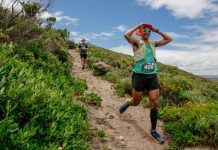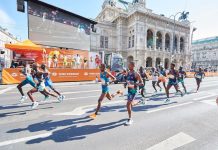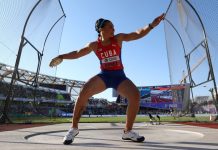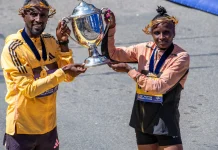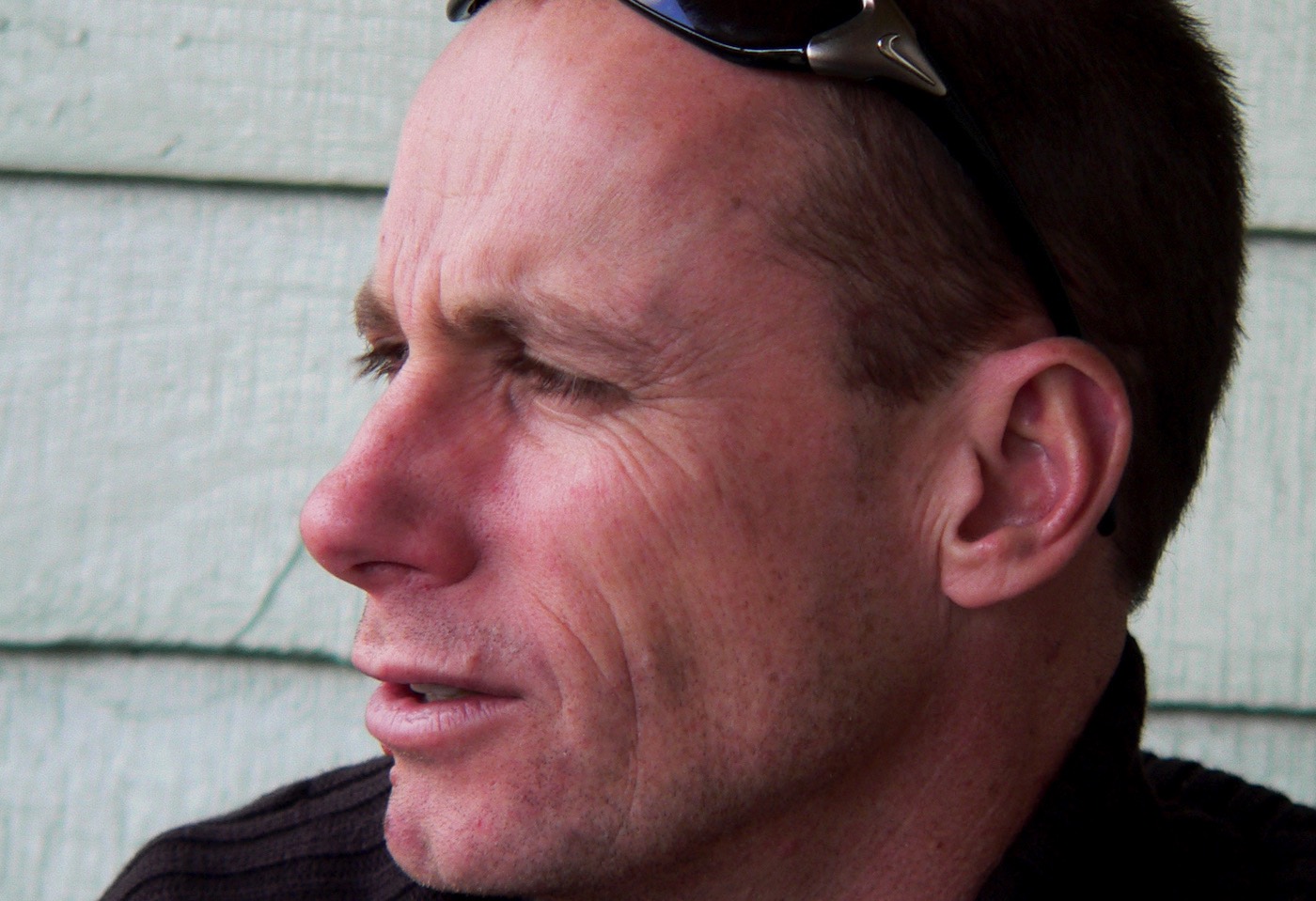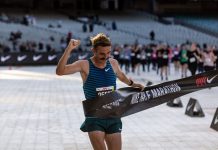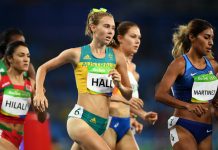A Column By Len Johnson – Runner’s Tribe
It is entirely fitting that Steve Moneghetti’s induction into the Athletics Australia Hall of Fame should have been announced the week of the world cross-country championships.
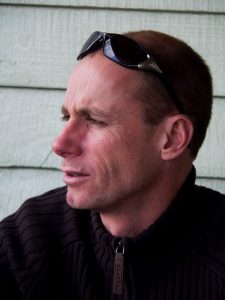
Despite his great achievements at the marathon and on the track, it was the world cross-country which provided the book-ends for Moneghetti’s 20-year-long international career. He competed in the championships 11 times, from his debut in Lisbon in 1985 to his ‘retirement’ after Brussels in 2004.
‘Mona’ was an athlete of habits, overwhelmingly good habits. He raced whole=heartedly, but it was the pattern of his racing which revealed as much about Steve Moneghetti the athlete as anything else. Year in, year out, the same races would be found in his diary like so many sixpences in a Christmas pudding.
There would be the Zatopek 10,000 metres, Ballarat’s Lap of the Lake (Wendouree), the Sandown road relays, the cross-country relays, the year’s major championship marathon, the Victorian 12km cross-country title. Not all of them featured every single year; sometimes calendar clashes would rule one or the other out. But you would find these races bobbing up in the meticulously recorded Moneghetti diaries time after time.
The world cross-country stood high among Moneghetti’s priorities. He ran for the first time in 1985, finishing an inauspicious 101st behind Carlos Lopes in Lisbon, and for the last time in Brussels in 2004, finishing 30th in the race won by Kenenisa Bekele.
And his record was superb. Moneghetti’s fourth place over the quagmire that was Stavanger golf course in 1989 is the highest ever attained by a male Australian. His sixth in Boston in 1992 has been equalled only by Robert de Castella and his finale in Brussels – four years after he had signed off at the end of the Sydney Olympic marathon with a “Steve Moneghetti – over and out” – coincided with Benita Willis’s one and only Australian individual victory.
At one time Ron Clarke was espousing a theory that each runner – even the most versatile – had a rhythm best suited to one race distance. For Steve Moneghetti, great as he undoubtedly was at marathon and 10,000 metres, 12,000 metres across the country was arguably his signature event. He, de Castella and Willis are undoubtedly the giants of Australian cross-country.
I was fortunate enough to witness two of Mona’s world cross-country performances. In 1985, I travelled with the team to his debut championships in Lisbon, which were preceded by a training camp on the Algarve. Mona was just a callow youth, a 22-year-old from Ballarat venturing onto a big stage.
Finishing one place outside the top 100 maybe does not sound like much of a run. And it wasn’t. But it did come with two mitigating features: there were 298 starters in the senior men’s race, so it represented the top one-third of the field; more importantly, it fired Moneghetti up for more. He finished 22nd and then 11th in the following two years.
Then I was in Stavanger for the 1989 championships. The opportunity to go to the titles for The Age arose in strange circumstances. I had not asked to go, but my sports editor suggested I nominate the trip seeing I had gone to the previous year’s championships in Auckland.
A few weeks before departure I bumped into the editorial manager (the man who approves the budgets) coming out of the staff carpark (him, that is: I was on my way to feed a parking meter).
“Nice trip you’ve wangled yourself,” he grumped. “Bloody Deek and Lisa (Ondieki) better run well.”
It was one of my wiser decisions not to advise him that neither de Castella, nor Ondieki would be competing.
Anyway, Mona and Jackie Perkins saved my bacon. Moneghetti finished fourth on a course which had been turned into a mud-heap by typhoon-like rain and wind on the eve of the race, while Perkins was fifth, the highest place attained by an Australian woman to that time.
Statistically, some of Mona’s latter runs do not seem that impressive. But his 46th in Turin in 1997 came after he fell early in the race, regaining his feet only after almost the entire field of 286 had swept past. And in 2001, over Ostend mud similar to Stavanger’s, he was among the last few on the first lap before working his way through to 41st.
In seven of his 11 appearances Moneghetti led the Australians home. Aside from his debut, the only Australians to finish ahead of Moneghetti were de Castella in 1986 (14 and 22), Lee Troop in 2001 (25 and 41) and Craig Mottram (13) and Troop (21) in 2004 (30). Mottram, Troop, Moneghetti and Brett Cartwright combined to put Australia in fifth place in the teams, the best by the men since fourth in 1983. Moneghetti played a significant role in getting that strong team together.
So it is for good reason that cross-country features prominently in the excellent citation written by Paul Jenes on the Athletics Australia website. It is well worth a read, as are the citations for the two other inductees, Tatiana Grigorieva and Marilyn Black.
Grigorieva came to Australia from Russia as a middling good 400 metres hurdler, took up the pole vault and went on to win a silver medal at Sydney 2000. She also finished third, fourth and 12th in three world championships finals and won the gold medal at the Manchester 2002 Commonwealth Games. Black reached the finals of the two individual sprints at the Tokyo 1964 Olympic Games finishing sixth in the 100 and taking the bronze medal in the 200, and was a member of the 4×100 relay which finished sixth in the final.
Moneghetti, Grigorieva and Black will be inducted on 2 April at the Athletics in Australia Celebration at the conclusion of the national championships in Sydney.
About the Author-
 Len Johnson wrote for The Melbourne Age as an athletics writer for over 20 years, covering five Olympics, 10 world championships, and five Commonwealth Games.
Len Johnson wrote for The Melbourne Age as an athletics writer for over 20 years, covering five Olympics, 10 world championships, and five Commonwealth Games.
He has been the long-time lead columnist on RT and is one of the world’s most respected athletic writers.
He is also a former national class distance runner (2.19.32 marathon) and trained with Chris Wardlaw and Robert de Castella among other running legends. He is the author of The Landy Era.



